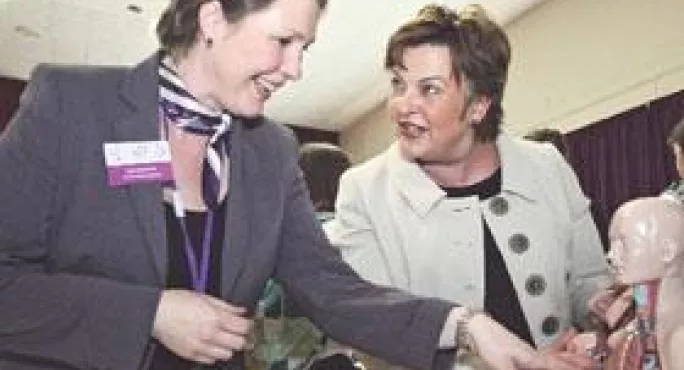Backing off from baccs

The government’s new flagship qualification, the Scottish baccalaureates in science and languages, could be shunned by universities because it will not be offered in all schools, The TESS has learnt.
This has emerged despite the interdisciplinary project - the only new element of the qualification - receiving an impressive tariff score from the admissions service UCAS.
But one of Scotland’s largest universities plans to ignore the new qualification because of the likelihood of patchy take-up. Niall Bradley, depute director of student recruitment and admissions at Edinburgh University, told The TESS: “We would not want to disadvantage students who do not have access to certain qualifications.”
Just over 100 schools have expressed an interest in offering the two baccalaureates when they are introduced in August.
Ken Cunningham, general secretary of School Leaders Scotland, said that, while this was “very positive and reassuring”, he doubted if all would be able to do so in practice as many were struggling to find the staff and resources to offer Advanced Highers, an integral part of the award.
Secondary heads have already expressed fears that access to the baccs will be “a postcode lottery” (TESS, April 3).
Universities are broadly supportive of the new qualification in principle. They believe the interdisciplinary project could well prepare students better for university and support the independent research aspects.
However, sources suggest that the bacc may suffer from the same problem as Advanced Highers. With Highers regarded as the “gold standard” for admission to university, Advanced Highers have failed to gain the kudos they should have.
For many universities, the Scottish Baccalaureate remains something of an unknown quantity, partly because, according to one source, the higher education sector has not been closely involved in its preparation.
Nonetheless, Fiona Hyslop, the Education Secretary, said last week she was particularly pleased the interdisciplinary project element of the award had been given exactly half the UCAS points for an Advanced Higher at the same grade.
“Taking into account that this is a new qualification with no candidate evidence, the interdisciplinary project has done well to achieve half the marks of an Advanced Higher, which itself has recently had its tariff increased by UCAS in recognition of its high standing,” she said. “We are very pleased with this rating, as it will ensure that the Scottish Baccalaureates are recognised when young people apply for university courses in Scotland or elsewhere in the UK.”
Dollar Academy, an independent school in Clackmannanshire, has embraced the Scottish Baccalaureate qualification with enthusiasm - 40 out of its 47 pupils with the right combination of subjects have expressed an interest in doing the science bacc next session. “We have such a large number of Form 6 pupils doing three Advanced Highers anyway,” said Simon Johnson, assistant rector.
The school has a strong reputation in the sciences, with 25 or 30 typically applying to study medicine or veterinary medicine.
Deborah Keys, head of engineering and applied physics at Dollar Academy, took part in the Scottish Qualifications Authority’s design team on the science bacc. She sees the advantage of the qualification as developing pupils’ time management, research, negotiation and team-working skills.
She added: “Although they will be doing an individual project, it will still mean working with other people. The fact they need to set their project in a real-world context means it is not just another Advanced Higher investigation.”
University lecturers felt the interdisciplinary project would help students to develop independent learning skills more quickly, she felt.
Meanwhile, Forth Valley College is to operate as the hub for 69 pupils from 13 secondaries to do the interdisciplinary projects for their science bacc. A spokesman for the college said it had also received an approach to offer an Advanced Higher which one of the schools was unable to deliver. The college will offer professional development training for science and technology teachers involved in the baccalaureate.
Keep reading for just £1 per month
You've reached your limit of free articles this month. Subscribe for £1 per month for three months and get:
- Unlimited access to all Tes magazine content
- Exclusive subscriber-only stories
- Award-winning email newsletters